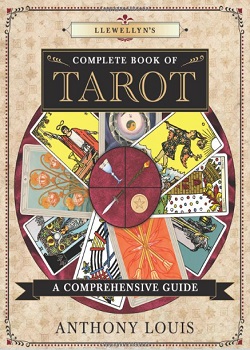- Select one card then click it once it turns over.


Guide for beginners:

- Concentrate on any particular situation you may need help with.
- When you are ready, select a card.
- Speaking out loud or in your head, describe the card as if you were talking to a friend.
- Don’t try to analyze the meaning of the card at this stage. Simply say what you see on the card
- If you gain any insights as you are thinking about the card, jot them down.
- Next think about possible interpretations. Do any of these meanings relate to your current life or the situation you sought help with?
- Later in the day, reflect on the card and ask yourself the same questions. In what ways has the archetype of the card appeared in your life?
- If a single card for the day answer your question, try drawing another.
- Remember that practice is key to interpreting One-Card Tarot Readings
- Choose a second card or one from our Major Arcana Reading if you need further guidance on cards
Repeat with groups of two or more cards. How does one card connect to the others? What do they have in common? How do they contrast with one another? What would need to happen for the situation on one card to develop into the scene depicted on the next? Which characters are looking at each other? Which are looking away from one another? How might the characters on different cards interact?

This page is part of our Tarot Online. You may have wanted Tarot Card Meanings. You will find many more pages with tarot guidance. Use the search at the bottom of the page. We also have some amazing tarot books to suggest to you. Please check them out.
Here are some snippets from a few of my favorite books

Complete Book of Tarot: Part of making predictions is learning about what you need to do to switch off the rational part of your brain. Automatically, it will try and internally argue with you about what is happening, telling you that it does not make any sense. Trust what is happening within your body and your mind, and delve as deeply into that information as possible. Stop thinking rationally, and instead, allow your mind to explore the boundless possibilities that may arise in your thinking.
Elements of the Psychic World: A belief system of nature and goddess worship, magical practice and folk religion that incorporates numerous other traditions including divination, herbalism and paganism. A female practitioner is called a witch and a male practitioner is called a warlock. In contrast to Wicca, a decidedly white magic movement, witchcraft utilizes both white and black magic, depending on the choice made by the individual.
Tarot Triumphs: The concept of a ‘world soul’ was apparently first formulated by Plato in the Timaeus and was also embodied in mystical teachings from the early centuries CE, such as the kabbalistic and hermetic philosophies.68 In Kabbalah, it is personified as Shekinah, the feminine grace of God as it descends to the garden of creation, and is there symbolized by the beauty of woman. Perhaps it also accords with the representation of the sacred force of nature in alchemy. Other early versions of this card may also back up the notion that she was no ordinary dancing girl, but a representation of holy truths; the main counterparts, alternatives for the Triumph of the World, were images of the Holy City Jerusalem and the Holy Grail.
- Do get in touch if you looked for One Card and we don’t have it listed. We would be more than happy to source the information for you. We hope you visit again for more online tarot information!
Elements of the Psychic World: Over 250 years an estimated 200,000 people were executed for witchcraft in the most brutal manner. Most of the executions took place in Europe, especially in Germany. In America the worst case was the Salem witch trials in 1692, in which 141 people were falsely arrested on the basis of accusations by hysterical children; 20 were sentenced to death. Victims of the witch-hunts typically included village wise men and women who had reputed healing or magical powers or psychic powers such as clairvoyance. Victims were often tortured into making confessions.